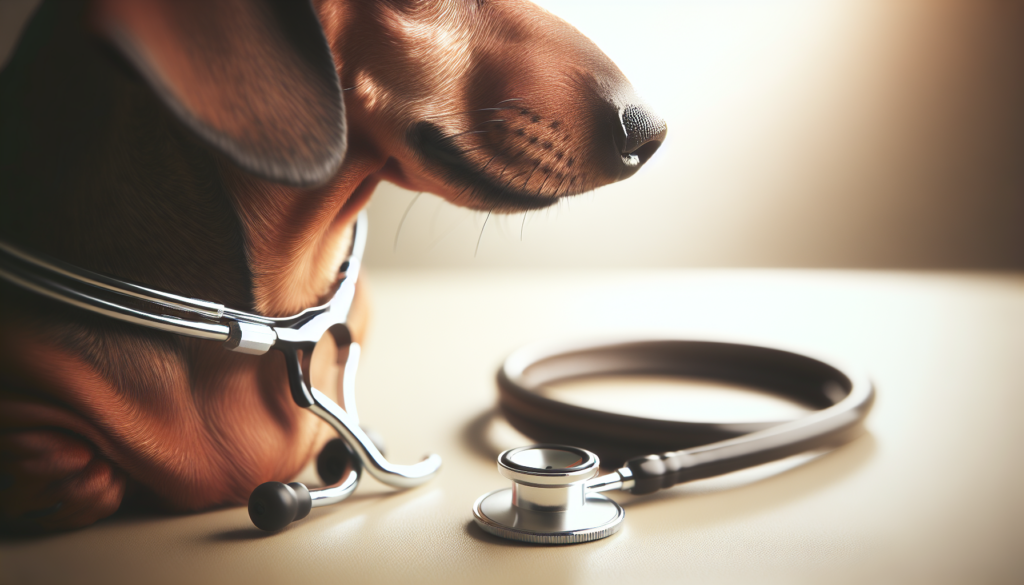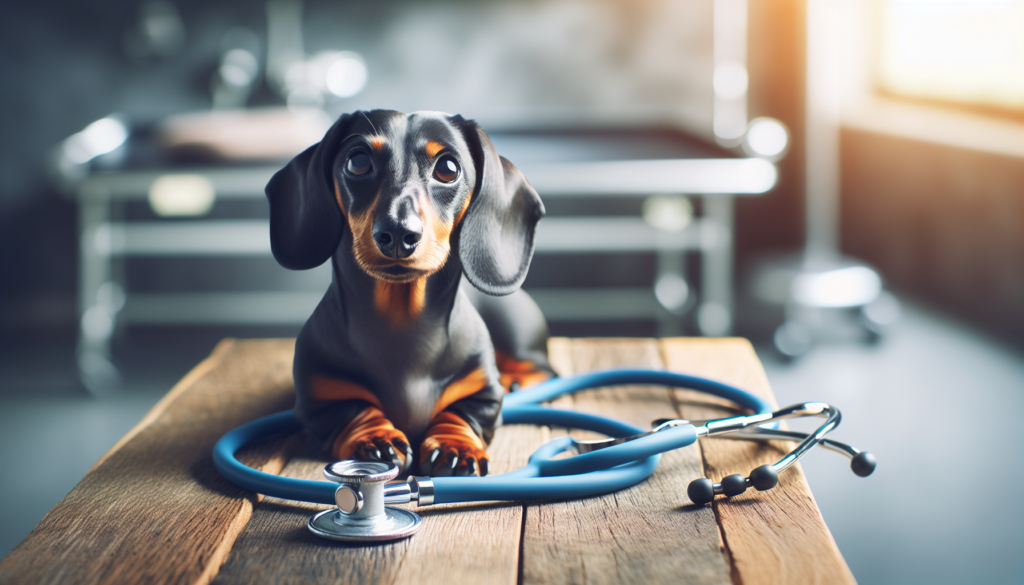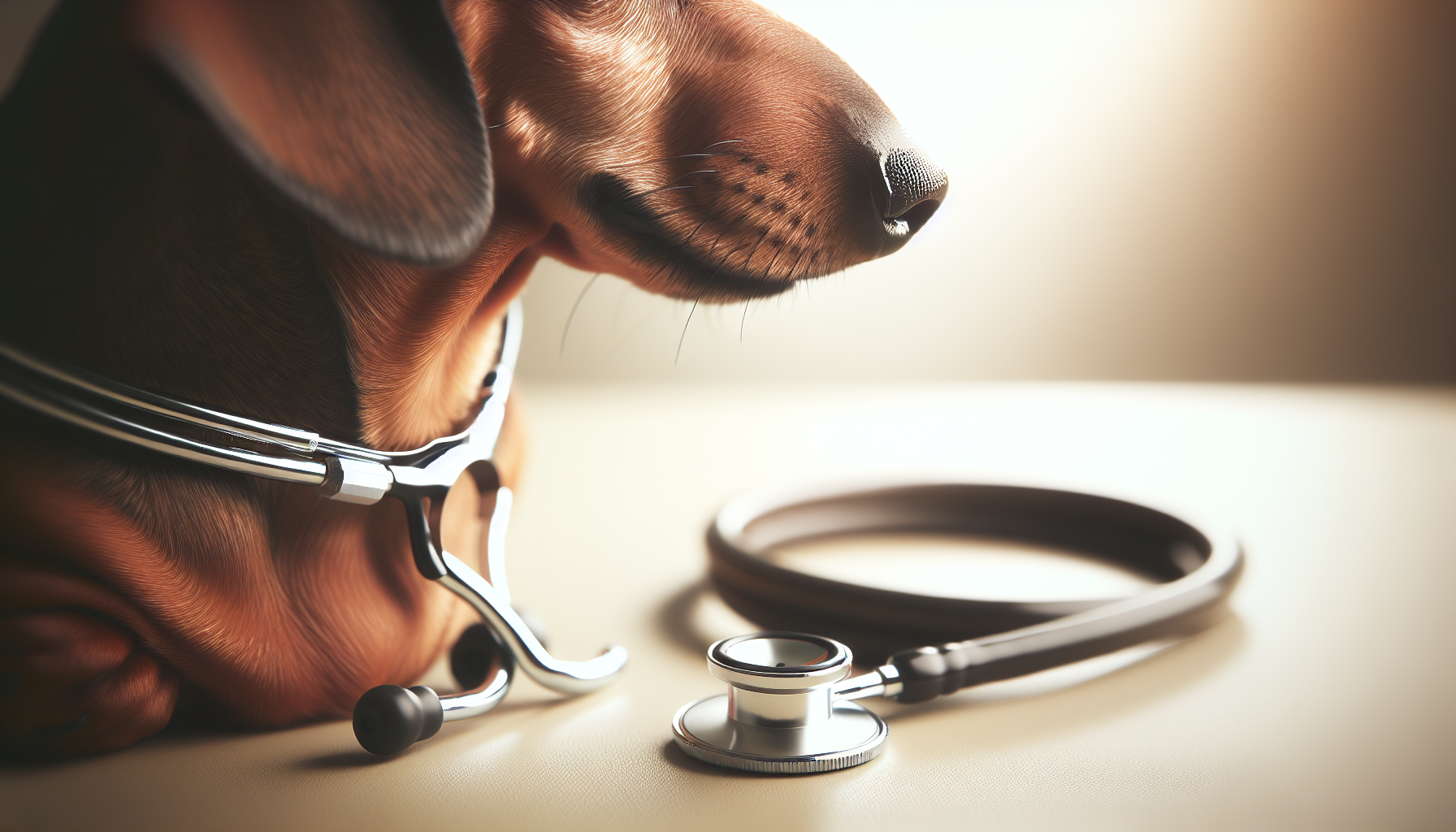Are you a proud owner of a dachshund or considering bringing one into your life? If so, it’s important to be aware of the common health issues that can affect these adorable little dogs. From their elongated backs to their captivating personalities, dachshunds are unique in many ways. However, this unique body shape can also make them more prone to certain health problems. In this article, we’ll explore some of the most common health issues faced by dachshunds, so you can ensure the well-being and happiness of your furry friend. So let’s jump right in and learn how to keep your dachshund healthy and vibrant for years to come!
Dachshund Common Health Issues
Dachshunds, also known as “sausage dogs” or “wiener dogs,” are a popular breed known for their long bodies and short legs. While these small and adorable dogs make great companions and family pets, it’s important to be aware of their common health issues. By understanding these potential health concerns, you can take proactive steps to keep your Dachshund happy, healthy, and thriving.

Obesity
One common health issue that Dachshunds are prone to is obesity. These dogs have a tendency to overeat, and combined with their long bodies, it puts excess strain on their backs and joints. Obesity can lead to a variety of other health problems, including diabetes, heart disease, and joint issues.
Preventing and managing obesity in Dachshunds requires a balanced diet, portion control, and regular exercise. Consult with your veterinarian to develop a diet plan that meets your Dachshund’s specific nutritional needs and monitor their weight regularly. Engaging in activities such as daily walks and interactive playtime can help maintain their weight and keep them in good physical condition.
Intervertebral Disc Disease
Another health issue that affects Dachshunds is intervertebral disc disease (IVDD). Due to their unique body shape, Dachshunds are prone to spinal problems. IVDD occurs when the discs between the vertebrae in the spine degenerate or become herniated, causing pain, nerve damage, and potential paralysis.
Symptoms of IVDD in Dachshunds may include neck or back pain, difficulty walking or jumping, and in severe cases, loss of movement in the hind legs. If you notice any of these symptoms, consult your veterinarian immediately. Treatment options for IVDD range from medication and crate rest to surgical intervention, depending on the severity of the condition.
Hip Dysplasia
Hip dysplasia is a hereditary condition that affects many dog breeds, including Dachshunds. It occurs when the hip joint doesn’t develop properly, leading to joint instability and subsequent arthritis. While it is more common in larger breeds, Dachshunds can still be prone to this condition.
Signs of hip dysplasia in Dachshunds may include difficulty getting up or climbing stairs, lameness, or a bunny hop-like gait. Regular exercise, maintaining a healthy weight, and providing joint-healthy supplements can aid in managing hip dysplasia. In severe cases, surgery may be necessary to alleviate pain and improve mobility.
Patellar Luxation
Patellar luxation involves the dislocation of the kneecap and is another common health issue seen in Dachshunds. This condition can be hereditary or caused by trauma. Signs of patellar luxation include limping, skipping or hopping, and the occasional complete inability to use the affected leg.
Treatment for patellar luxation can vary depending on the severity. Mild cases may be managed through weight management, exercise restrictions, and pain medication. Severe cases may require surgical intervention to correct the alignment of the kneecap.

Progressive Retinal Atrophy
Progressive retinal atrophy (PRA) is a hereditary eye disorder that affects the retina. It gradually causes the degeneration of the light-sensitive cells in the eye, leading to vision loss and potential blindness. Dachshunds, particularly those with the dapple or merle coat pattern, can be prone to this condition.
Early signs of PRA in Dachshunds may include night blindness, dilated pupils, and difficulty navigating in low-light environments. While there is no cure for PRA, regular eye exams and genetic testing can help detect the disease early on. Although affected dogs may eventually lose their eyesight, they can still lead fulfilling lives with proper care and support.
Cushing’s Disease
Cushing’s disease, also known as hyperadrenocorticism, is a hormonal disorder that affects the adrenal glands. Dachshunds are more susceptible to developing this condition compared to other breeds. It occurs when the adrenal glands produce excessive levels of cortisol, resulting in a variety of symptoms.
Common signs of Cushing’s disease in Dachshunds include increased thirst and urination, weight gain, hair loss, and skin infections. If you notice these symptoms, consult with your veterinarian for diagnosis and a treatment plan. Medication and lifestyle adjustments are often used to manage the symptoms and improve the dog’s quality of life.
Gastric Dilatation-Volvulus
Gastric dilatation-volvulus (GDV), commonly known as bloat, is a life-threatening condition that can occur in Dachshunds. It involves the twisting of the stomach, which traps gas and causes it to distend. GDV requires immediate veterinary intervention, as it can lead to organ damage and even death.
Signs of GDV in Dachshunds may include restlessness, pacing, a distended abdomen, retching or unproductive vomiting, and weakness. If you suspect your Dachshund is experiencing GDV, seek emergency veterinary care immediately. Surgery and preventative measures, such as feeding smaller meals and avoiding vigorous exercise after meals, may be necessary to reduce the risk of recurrence.
Epilepsy
Epilepsy is a neurological disorder characterized by recurring seizures. While it can affect any breed, Dachshunds are among the breeds prone to this condition. Seizures can range in severity and duration, and their underlying cause may not always be clear.
If your Dachshund experiences seizures, it’s crucial to consult with a veterinarian for proper diagnosis and treatment. Medication and lifestyle adjustments can often help manage seizures and improve the dog’s quality of life. Monitoring and keeping a record of seizure activity can assist your veterinarian in developing an effective treatment plan.
Canine Diabetes
Canine diabetes is a metabolic disorder that affects the regulation of blood sugar levels in dogs. Dachshunds are at risk of developing diabetes, particularly as they age or if they become obese. The condition occurs when the pancreas does not produce enough insulin or when the body becomes resistant to insulin.
Symptoms of diabetes in Dachshunds may include increased thirst and urination, weight loss despite increased appetite, lethargy, and recurrent infections. Diagnosing diabetes involves blood tests and urine analysis. Treatment typically involves insulin therapy, dietary changes, and regular monitoring of blood sugar levels.
Allergies
Dachshunds can be prone to various allergies, including food allergies, environmental allergies, and flea allergies. Symptoms of allergies in Dachshunds may include itching, redness, excessive licking or chewing, hair loss, and recurrent ear infections.
To manage allergies, it’s important to identify and avoid the allergens triggering the reactions. Allergy testing may be necessary to determine specific triggers. Your veterinarian can recommend allergen-free diets, medication, or ongoing allergy shots to help control symptoms and provide relief.
In conclusion, while Dachshunds are beloved pets known for their delightful personalities, it’s crucial to be aware of their common health issues. By recognizing the signs and symptoms associated with these ailments, you can seek appropriate veterinary care and take preventive measures to ensure your Dachshund lives a happy and healthy life. Regular check-ups, a balanced diet, exercise, and proper grooming are essential components of maintaining your Dachshund’s well-being and reducing the risk of developing these common health conditions.
